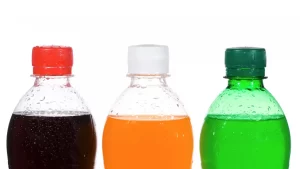
The Food and Drug Administration (FDA) is considering a ban on Brominated Vegetable Oil (BVO), a modified vegetable oil commonly used as an ingredient in soft drinks.
The proposed ban comes as a response to recent toxicology studies that have raised concerns about the safety of BVO, making its continued use difficult to justify.
While the proposal marks a crucial step, it is important to note that the FDA’s reclassification of BVO still requires an extensive review process, which will inevitably take some time to complete. However, this move signals the FDA’s commitment to reviewing regulations related to food additives, with an emphasis on promptly prohibiting the approval of any food coloring agents shown to cause cancer in humans or animals, thereby streamlining the bureaucratic process.
James Jones, the FDA’s deputy commissioner for human foods, stated, “The proposed action is an example of how the agency monitors emerging evidence and, as needed, conducts scientific research to investigate safety-related questions, and takes regulatory action when the science does not support the continued safe use of additives in foods.”
Used as an emulsifying agent since the 1930s to prevent citrus flavoring agents from separating in soft drinks, BVO has faced increasing scrutiny due to its potential health risks. According to studies conducted on animals, the compound can accumulate in fat tissues over time, leading to iodine deficiency disorders. Several regions, including India, Japan, and EU nations, have already banned BVO, and California outlawed its use in October 2022, with the legislation set to take effect in 2027.
To address concerns about possible toxicity, the FDA had previously imposed temporary restrictions on BVO, allowing its use only in citrus-flavored drinks in relatively small concentrations of up to 15 parts per million. However, gathering comprehensive data on the long-term risks associated with even these small amounts of BVO has proven challenging, necessitating extensive studies that evaluate health effects in a significant sample size. Nonetheless, mounting evidence from such studies, including a UK study from the 1970s, which found bromine accumulation in human tissues and animal studies linking high BVO concentrations to heart and behavioral problems, has convinced the FDA that a complete ban on its use is warranted.
Fortunately, major soda companies such as PepsiCo and Coca-Cola Co. have been proactive in phasing out BVO from their products over the past decade. “Over the years, many beverage makers reformulated their products to replace BVO with an alternative ingredient, and today, few beverages in the US contain BVO,” explained Jones.
Given that suitable alternatives to BVO are already being used to maintain the tangy taste of citrus drinks worldwide, it is unlikely that consumers will notice the absence of this ingredient.
